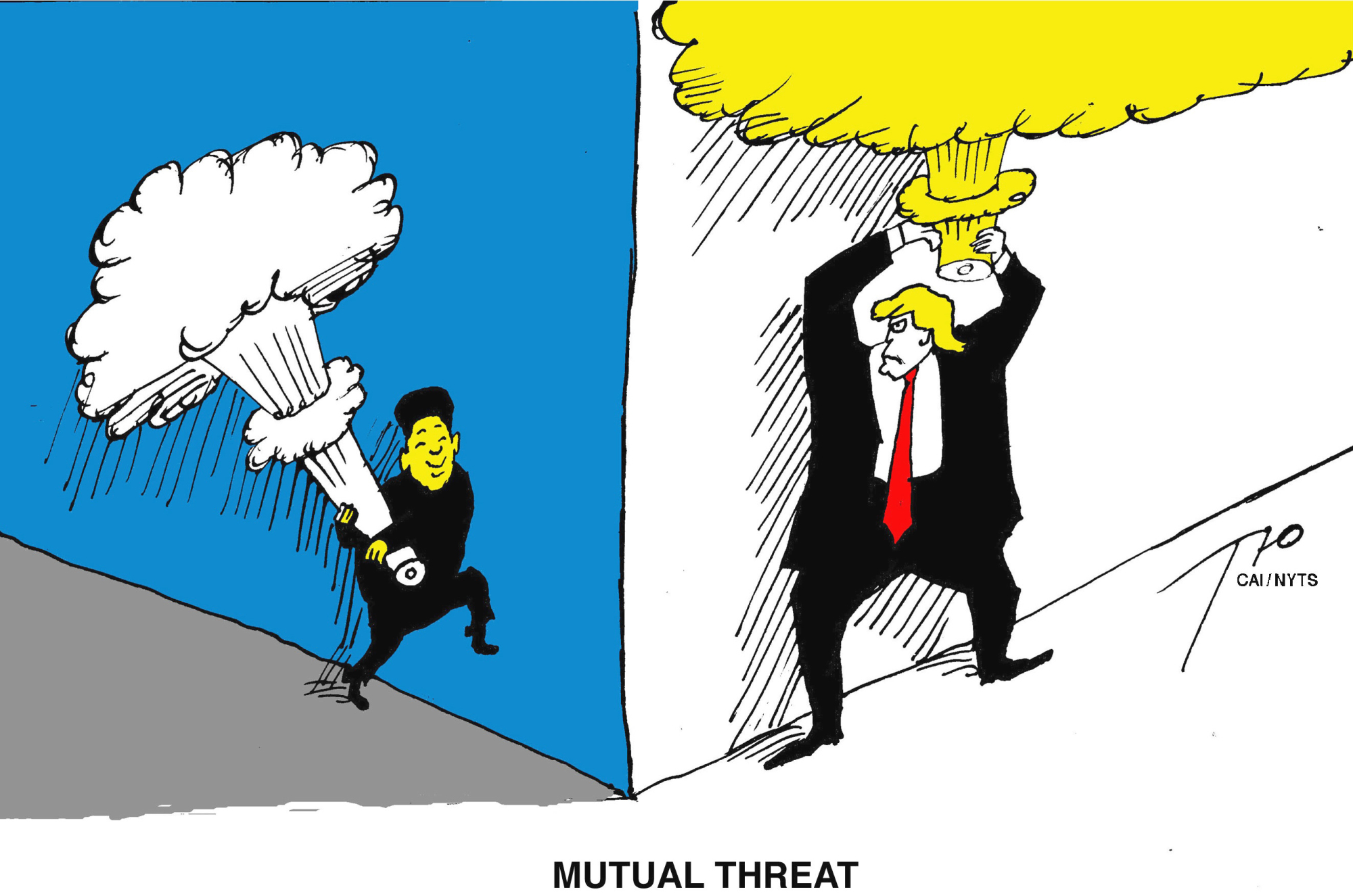The recent exchange of belligerent rhetoric between North Korean leader Kim Jong Un and U.S. President Donald Trump has escalated tensions on the Korean Peninsula to dangerous levels where any miscalculation by either side could lead to war, while renewed efforts to seek a political solution to the issue of Pyongyang's nuclear weapons development continue.
Reacting to the latest sanctions imposed by the United Nations Security Council, North Korea has threatened to launch intermediate-range ballistic missiles toward Guam — which would theoretically fly over Japan's Shimane, Hiroshima and Kochi prefectures. Trump, responding in a bombastic manner never shown by his predecessors, warned that North Korea would face "fire and fury, like the world has never seen."
After month-long negotiations at the U.N. between the U.S. and China, North Korea's ally and largest trade partner, the Security Council adopted unanimously a new resolution on Aug. 5, on the heels of Pyongyang's two test-firings of what it claimed to be an intercontinental ballistic missile on July 3 and 28. The latest resolution condemned the ICBM launches in the "strongest terms" and imposed tougher trade and financial sanctions that included a total ban on imports of coal, iron and iron ore, lead and lead ore, and seafood from the reclusive state. It also prohibits any increase in the number of North Korean workers abroad, as well as new or expanded joint ventures with North Korea.



